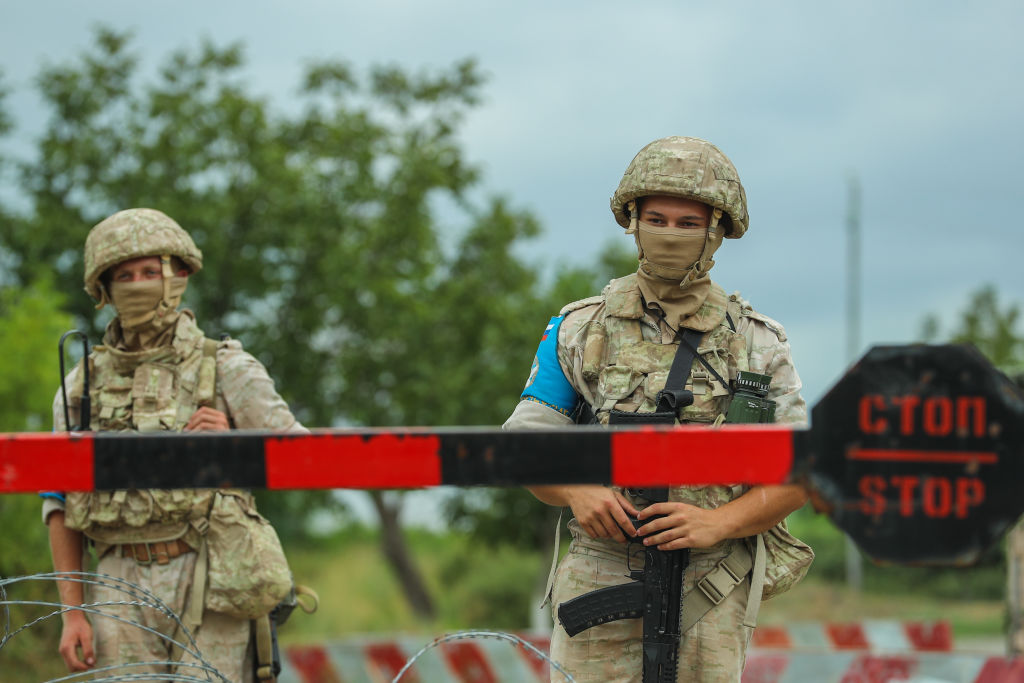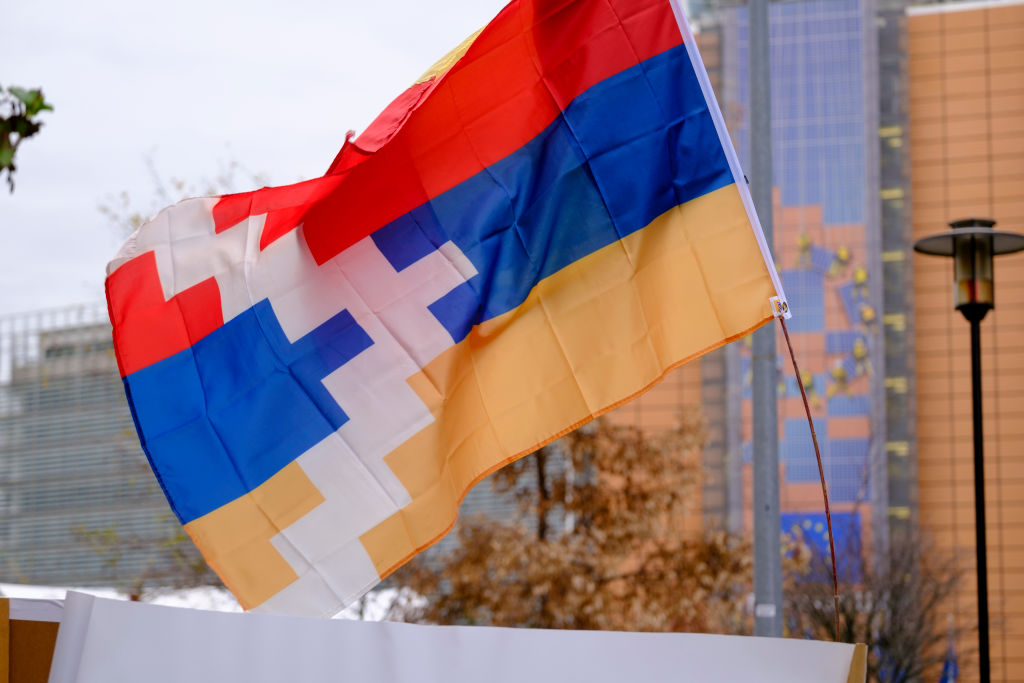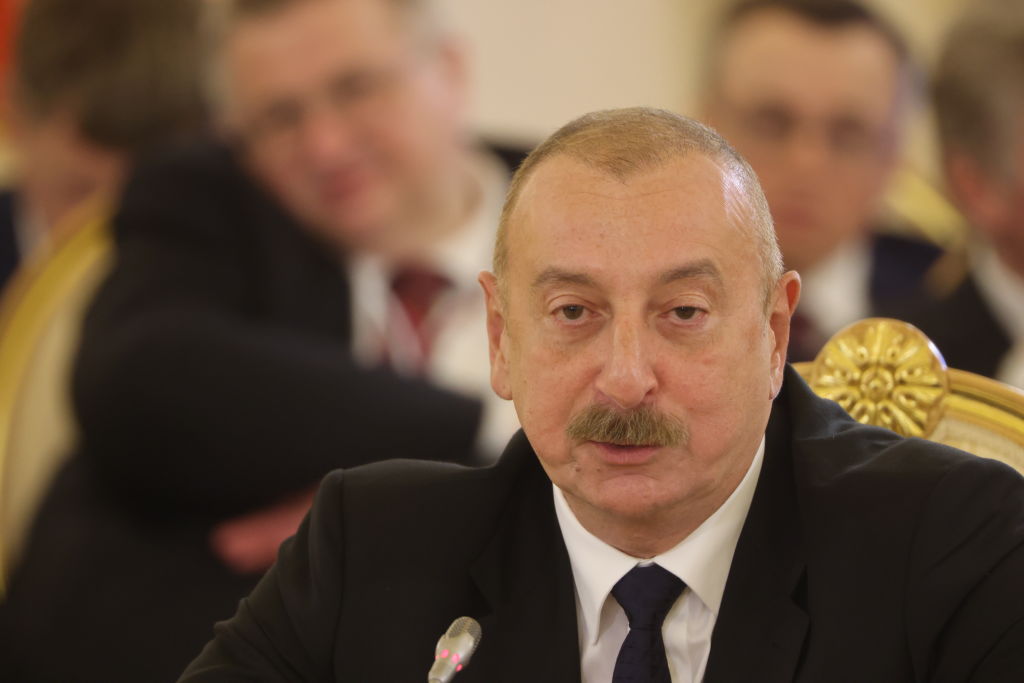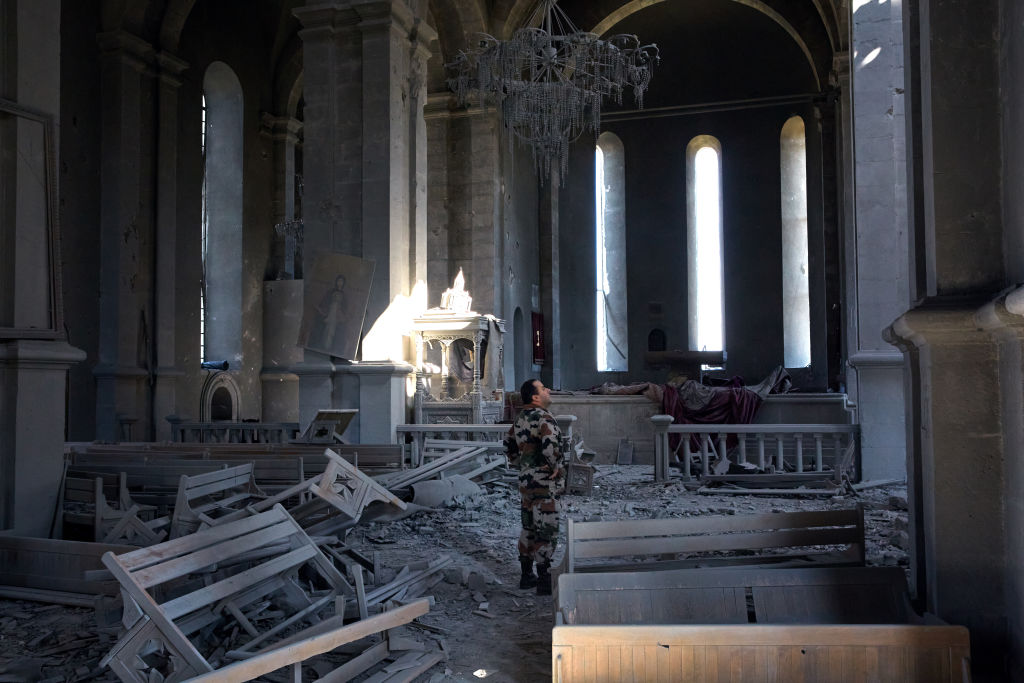Azerbaijan has launched hostilities designed to “achieve peace and stability in the region”, demanding an unconditional and complete withdrawal of Armenian armed forces from the disputed Nagorno-Karabakh territory.
On September 19, Azerbaijan said it was executing an “anti-terrorist operation” and launched attacks against several targets in Nagorno-Karabakh.
The hostilities took place against the backdrop of a humanitarian crisis in the break-away region, with civilians suffering under a blockade that has lasted around nine months.
Azerbaijan’s action seems to have been spurred by one of its vehicles being blown up by an anti-tank mine, killing six. Azerbaijan blames Armenian “terrorists” and “saboteurs” for the incident.
Azerbaijan says it has repeatedly demanded accurate maps of where mines are buried in its “territories liberated from occupation” but accuses Armenia of not willing to provide these maps. That, it says, is “proving this country [Armenia] is interested in the killing of innocent people and its disregard for the norms of international humanitarian law”.
Azerbaijan’s military started shelling “Armenian sabotage groups”, hitting several targets. So far, at least four soldiers and two civilians are reported to have been killed and 23 wounded.
Azerbaijan is shelling civilian residential areas of #Stepanakert This is a building next to us with no military target in vicinity. pic.twitter.com/EZtJsAEBNg
— Siranush Sargsyan (@SiranushSargsy1) September 19, 2023
Local authorities said Stepanakert and other cities in the region are the targets of “intensive fire”. Armenians said the aggression was the latest phase “in a policy of ethnic cleansing” and is making appeals to the international community.
Azerbaijan’s foreign ministry said: “Local counter-terrorism measures have been launched in the region to prevent possible large-scale provocations by the Armenian armed forces located in the Garabagh economic region, and to ensure the implementation of the provisions of the Trilateral Statement, as well as for the disarmament and withdrawal of units of the armed forces of Armenia.”
It demands “neutralisation of their [Armenian] military infrastructure, and ensure the safety of a peaceful population, civilian employees and military personnel involved in the reconstruction work carried out in the area and to restore the constitutional system of the Republic of Azerbaijan”.
Armenia’s foreign ministry said: “Russian peacekeeping troops stationed in Nagorno-Karabakh will take clear and unequivocal steps to stop Azerbaijan’s aggression,” referring to the cease-fire agreement Moscow brokered between that country and Armenia in 2022.
Armenian Prime Minister Nikol Pashinyan urged Russia and United Nations to take action to stop the attacks.
Azerbaijan seems to have surprised friend and foes alike with the hostilites. Maria Zakharova, a Russian foreign affairs spokeswoman, said Russia was “alarmed” by the escalation of violence. She also said information about hostilities was only shared “minutes before the attack”.
Brussels Signal contacted the European Council, with the European Union having been “closely engaged” on the matter with both parties recently, and has been pushing for dialogue via the Brussels Trilateral Meeting. The Council replied there was no official reaction but referred to a tweet by its President Charles Michel.
Devastating news coming from former Nagorno-Karabakh oblast today.
Military actions of Azerbaijan must be immediately halted to allow for a genuine dialogue between Baku and Karabakh Armenians.
— Charles Michel (@CharlesMichel) September 19, 2023
Europe finds itself entangled in the conflict due to the considerable empathy felt for Armenia, a Christian democracy that boasts a substantial diaspora in the Western world.
In contrast, the autocratically governed Shia-majority Azerbaijan plays a pivotal role as a significant provider of oil and gas into the EU. This role has grown in significance following the imposition of sanctions against Russia over the war in Ukraine.
EU’s foreign policy chief Josep Borrell said in a statement similar to Michel’s that the bloc “condemns the military escalation” and “deplores the loss of lives”. He called for the immediate cessation of hostilities and for Azerbaijan to end all military activities.
Azerbaijan said legitimate military targets of Armenian armed formations were destroyed with “precise fire”.
UPDATED!
The number of civilian injuries has increased to 23. The recoded casualties among civilians are 2.
Azerbaijan continues its criminal offensive against Nagorno-Karabakh.
Civilian objects and infrastructure are also being targeted. pic.twitter.com/Ia17xbI4i3— Gegham Stepanyan (@Gegham_Artsakh) September 19, 2023
Azerbaijan Carries out intensive #bombing of civilian communities in Artsakh (#Nagorno_Karabakh). Multiple casualties among the civilian population, including #women and children; one #killed #child. pic.twitter.com/Bk86mLc8HP
— Arman Tatoyan (@atatoyan) September 19, 2023
Nagorno-Karabakh is a small enclave with an ethnic Armenian population situated within Azerbaijan. It is administered by the Republic of Artsakh, which lacks official recognition and receives support from leaders based in the Armenian capital of Yerevan.
It was established in the early 1990s as Armenian forces occupied the region following the initial Nagorno-Karabakh conflict.
In 2020, Azerbaijani military forces launched a counteroffensive, effectively encircling the ethnically Armenian territory.
Authorities in Azerbaijan’s capital Baku maintain that the region rightfully belongs to them and its residents are Azerbaijani citizens. They are resolute in their refusal to legitimise the Armenian leadership within Nagorno-Karabakh.
Armenia is not going to launch military actions because of the situation in Nagorno-Karabakh, Armenian Prime Minister Nikol Pashinyan said.
He emphasized that the republic has no army in Nagorno-Karabakh. " At the moment, we will not take any rash actions," the head of state… pic.twitter.com/hJP9L2qRIF
— NEXTA (@nexta_tv) September 19, 2023





